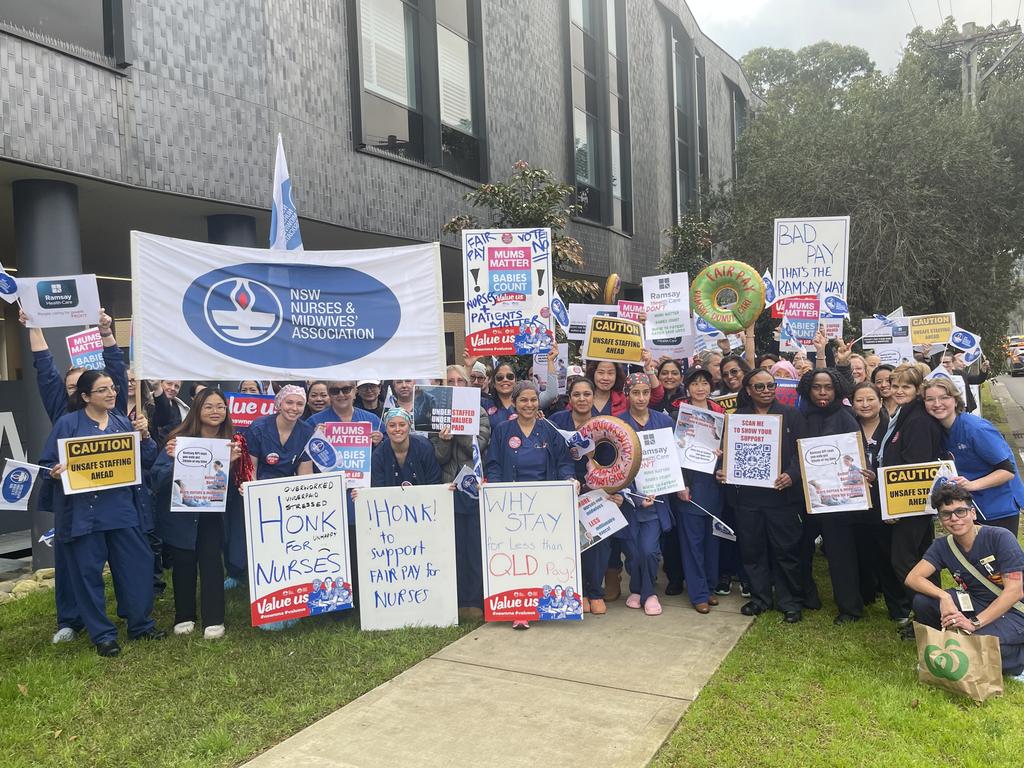Funding battle over a critical medicine is the latest front in private health war
Private hospital groups are warning that patients will increasingly be slugged with out-of-pocket costs as contract battles with health funds continue to rage.

Private hospital groups are warning that patients will increasingly be slugged with out-of-pocket costs as contract battles with health funds continue to rage, with threats by a major hospital group to slug inpatients an unprecedented co-payment and a dispute over how to fund a critical medicine to prevent uncontrolled bleeding during surgery the latest flashpoints of conflict.
Insurance behemoth Bupa expressed “shock and disappointment” on Tuesday at what it said was an “unprecedented and unfair” move by private hospital group Healthscope to charge its members an overnight $100 “hospital facility fee” after contracting negotiations broke down.
Members of a suite of Australian Health Service Alliance non-profit funds are also apparently set to be subject to an out-of-pocket gap payment after Healthscope accused those funds of refusing to adequately fund services in its hospitals.
The Canadian private-equity owned Healthscope said patients from those funds would be charged the fee from November because funding from Bupa and the AHSA “is not sustainably covering the cost of hospital treatments”.
The move, blasted by insurer peak body Private Healthcare Australia as an “unethical new low to extort money”, was met with bemusement by executives of other hospital groups who wondered how the fees could be contractually permissible. Bupa is examining its options as to whether the hospital co-payment is legal.
Another funding battle – over a lifesaving medicine that stems haemmorhage following surgery – is emerging as changes to the prosthesis list come into effect on Friday. The changes will see the removal of medicines and devices not included in the Australian Register of Therapeutic Goods that do not meet the eligibility requirements for listing on the Prescribed List of Medical Devices and Human Tissue Products.
Several medicines known collectively as fibrin sealants are among those to be removed from the Prescribed List, which provides that insurers must pay benefits to patients with appropriate policies who require them. Fibrin sealants are used in a variety of common procedures where there is a risk of bleeding, including cardiac surgery, bariatric surgery, renal surgery and gastrointestinal surgery, and are regarded as the best type of therapy for the purpose.
In recent years, private hospital cost inflation has far exceeded the funding provided by private health insurers. Private hospitals say the funding gap is now at such an acute stage that “the economics are simply unsustainable for private hospitals”.
The federal government recently reviewed the viability of private hospitals amid escalating concern in the sector, with a summary of its outcome pending public release.
Hospital groups are opposed to fibrin sealants being taken off the prescribed list but the federal government insists health insurers should negotiate with insurers to fund the products.
“To ensure clinicians’ choice, PHA recommends that all additional uses be funded where the medical practitioner certifies the use of the product is ‘reasonable and necessary’,” a memo from the health fund peak body says. “Funds will need to make their own individual decision on supporting these medicines and how you do so including the price you pay.”
However, Catholic Healthcare Australia said that while many insurers had agreed to fund fibrin sealants, some had not. It said the cost to hospitals was likely to be significant and would further threaten their viability.
“At this stage, many hospitals have been unable to reach agreements with insurers,” CHA director of health policy Katharine Bassett said. “Some insurers have said that they will look at funding, although we’re yet to see firm agreements in place, others are looking at ways that they could impact clinical autonomy.
“I’ve heard that some insurers may be looking at how and where these devices can be used, which is not a decision for insurance, it’s a decision for the clinician.
“And so the impact could then be that hospitals do not offer these devices, which impacts clinical autonomy. And that’s not a good thing, because we want to make sure that clinicians can choose the right devices. Or it means that the cost might be passed on to the doctor, who would then pass it on to the patient.”






To join the conversation, please log in. Don't have an account? Register
Join the conversation, you are commenting as Logout